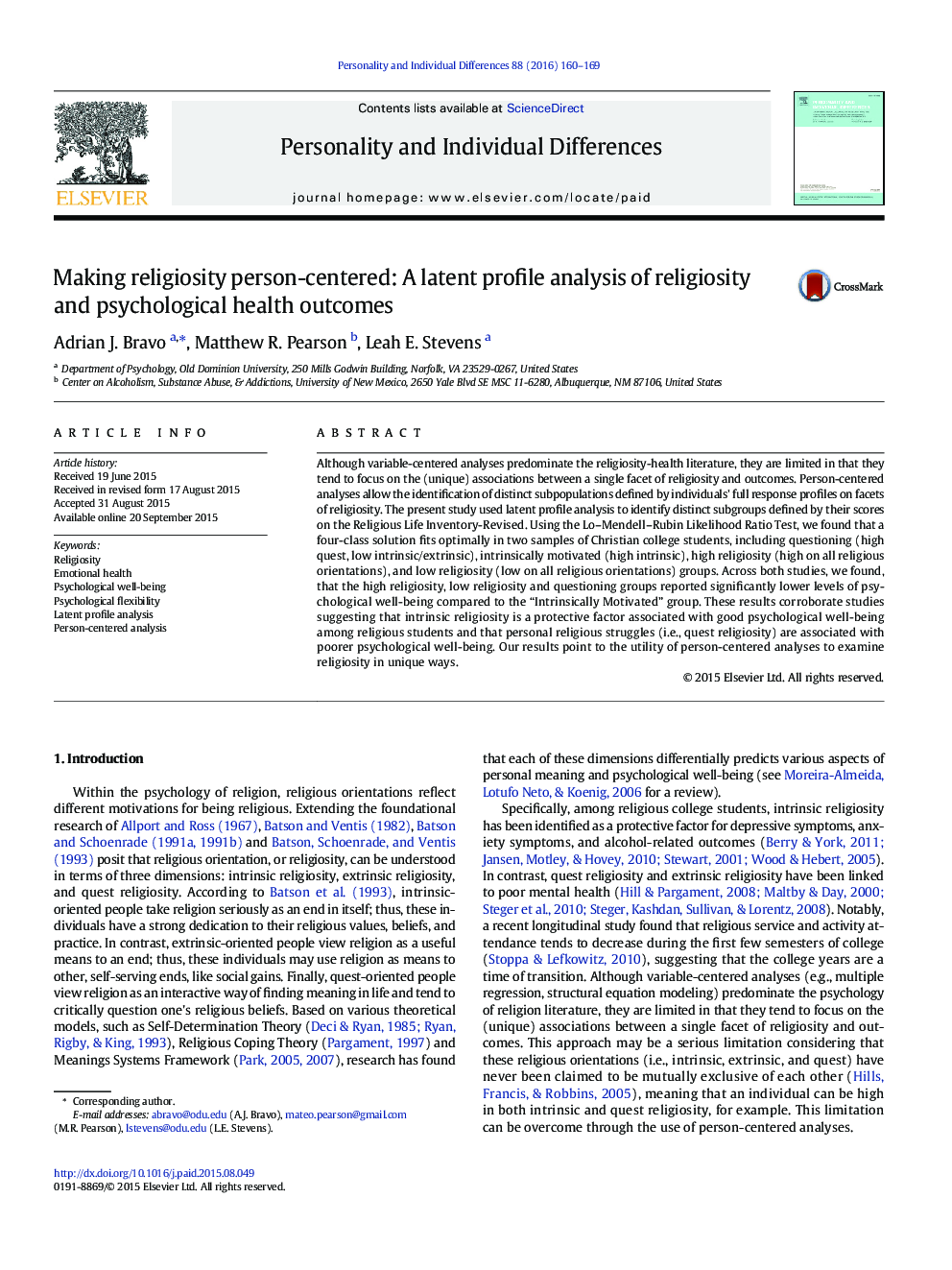| کد مقاله | کد نشریه | سال انتشار | مقاله انگلیسی | نسخه تمام متن |
|---|---|---|---|---|
| 889914 | 1472030 | 2016 | 10 صفحه PDF | دانلود رایگان |
• We used LPA to group Christian college students based on religious orientations.
• A 4-class solution was selected in two unique samples of Christian college students.
• The “Intrinsically Motivated” group had the most adaptive psychological outcomes.
• We discuss the implications of person-centered analyses for studying religiosity.
Although variable-centered analyses predominate the religiosity-health literature, they are limited in that they tend to focus on the (unique) associations between a single facet of religiosity and outcomes. Person-centered analyses allow the identification of distinct subpopulations defined by individuals' full response profiles on facets of religiosity. The present study used latent profile analysis to identify distinct subgroups defined by their scores on the Religious Life Inventory-Revised. Using the Lo–Mendell–Rubin Likelihood Ratio Test, we found that a four-class solution fits optimally in two samples of Christian college students, including questioning (high quest, low intrinsic/extrinsic), intrinsically motivated (high intrinsic), high religiosity (high on all religious orientations), and low religiosity (low on all religious orientations) groups. Across both studies, we found, that the high religiosity, low religiosity and questioning groups reported significantly lower levels of psychological well-being compared to the “Intrinsically Motivated” group. These results corroborate studies suggesting that intrinsic religiosity is a protective factor associated with good psychological well-being among religious students and that personal religious struggles (i.e., quest religiosity) are associated with poorer psychological well-being. Our results point to the utility of person-centered analyses to examine religiosity in unique ways.
Journal: Personality and Individual Differences - Volume 88, January 2016, Pages 160–169
